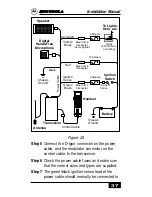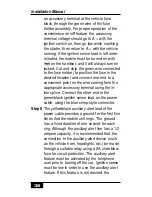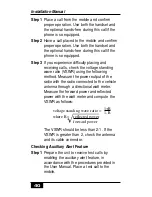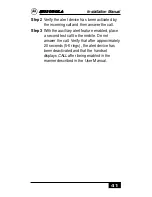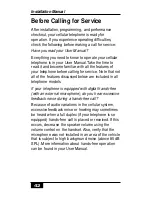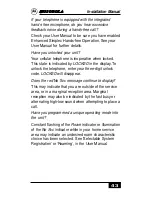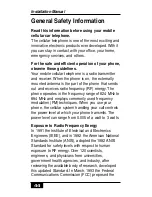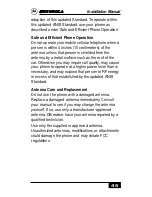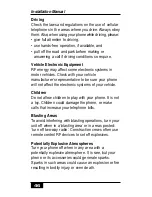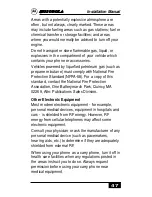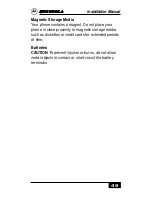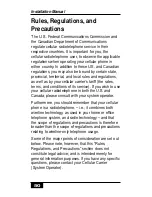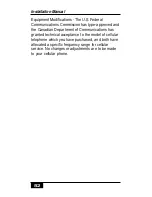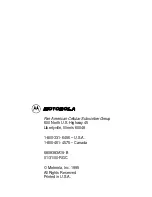
License - If your home system is in the U. S., you do
not require a separate license to operate your cellular
telephone; obtaining a cellular telephone access
number is sufficient to register you as a user. If your
home system is in Canada, a separate license is
required; your carrier will assist you in the licensing
process. If you wish to use your cellular phone on
both sides of the border, please contact your Cellular
Carrier (System Operator).
Denial of Service - A cellular carrier may deny service
temporarily, or terminate service for violation of any
government regulations or of its tariff.
Consumer Responsibilities - Remember that the
wireline and radio regulations with respect to
harassing calls, false distress calls, obscene
language, etc. apply to cellular phone usage.
Privacy - As a telephone user, you have come to
assume a certain standard of privacy when you place or
receive a telephone call via the traditional wireline
systems. However, because cellular radiotelephones
utilize radio transmissions to effect calls, the same
standard cannot always be assured. While it is unlawful
for an unauthorized person to divulge or use any
information obtained from intercepting or “listening in
on” conversations intended for others, you should not
assume that your conversation is completely secure.
Commercially available scanning equipment can permit
a third party to monitor the radio channels used for
cellular telephone calls.
Interference - No person shall interfere with or cause
interference to any radio communication or signal.
Installation Manual
51
Summary of Contents for T5ZX1
Page 2: ...Cellular Mobile and Attache Accessory Installation Manual ...
Page 8: ...Figure 4a Figure 4b Installation Manual 5 ...
Page 56: ......
Page 57: ......

